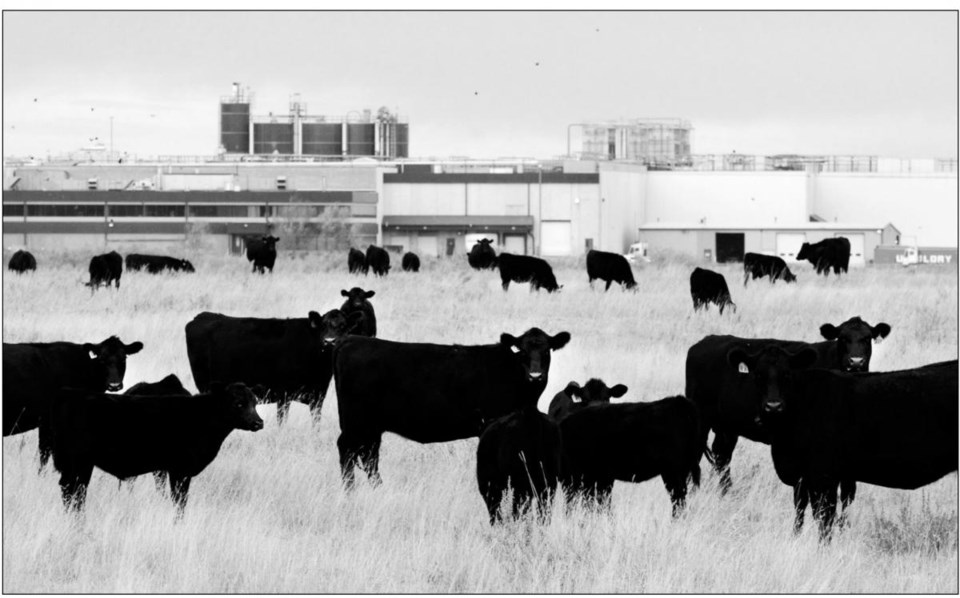Two British
Columbians who claim they fell ill after eating E. coli-contaminated beef from XL Foods have filed lawsuits, including a class-action, adding to the legal problems facing a company that is still struggling to bring its troubled plant in south-eastern Alberta back online.
The recall at XL Foods has grown to include 1,800 products at 33 retail chains across Canada, and at least 15 people in four provinces have become ill from a strain of E. coli linked to the plant, located in Brooks, Alta.
Lawsuits targeting XL Foods and its parent company, Nilsson Bros. Inc., have already been filed in several provinces, including class-action cases in Alberta, Saskatchewan, Ontario and Quebec, and illnesses linked to the plant have been reported as far away as Newfoundland.
The B.C. court cases include a lawsuit filed on behalf of 15-year-old Cody Farmer of Nanaimo, whose statement of claim says he fell ill after eating beef from the XL Foods plant in mid-September.
Farmer's statement of claim, filed Tuesday, says the boy suffered a range of symptoms including diar-rhea, inflamed bowels and internal bleeding, and he required surgery during his illness.
"The contamination of the beef by the E. coli occurred solely as the result of the defendant's negligence," says the statement of claim, filed in B.C. Supreme Court.
Another lawsuit involves Erin Thornton, a Vancouver woman who is the first plaintiff in what could be a class-action lawsuit for British Columbians affected by the recall.
Thornton's statement of claim, filed Oct. 12, seeks to launch a class-action case on behalf of anyone in British Columbia who bought recalled meat, whether they ate it and became ill or simply threw it out to avoid getting sick.
The statement of claim says Thornton spent four days in hospital after eating ground beef from the XL Foods plant before the meat was recalled.
The law firm working on Thornton's case, Siskinds of London, Ont., has already filed class-action cases in other provinces.
Daniel Bach, a lawyer with the firm, said it's easier under Canadian law to file class-action cases in each province rather than attempting to peruse a single lawsuit that stretches across the entire country.
Thornton will serve as the representative plaintiff, but the statement of claim seeks to include anyone who fell ill, customers who threw out recalled meat and now want a refund, and businesses who issued refunds to customers and want to be compensated by XL Foods.
The statement of claim alleges XL Foods failed to ensure meat from the plant was safe and failed to take adequate steps once the contamination was discovered.
"The defendant, XL Foods Inc., was negligent in the supply of beef products," says the statement of claim.
"The defendant, XL Foods Inc., did not meet industry standards, including those for testing and sampling of meat products for possible E. coli contamination."
The allegations in both cases have yet to be tested in court. XL Foods has not filed a statement of defence in either case and could not be reached for comment.
E. coli was first detected in the plant on Sept. 4, but it took 12 days for the first of numerous public alerts to be issued. The plant has been shut out of the U.S. market since Sept. 13, but the Canadian Food Inspection Agency didn't order the plant closed until Sept. 27.
Roughly 2,200 workers have been out of work during the recall and it's not clear when they will be asked to return. About 800 were recalled temporarily on Tuesday to finish processing beef carcasses as part of a Canadian Food Inspection Agency assessment.
The agency has said it expects to complete a report on its findings, including recommendations, before the beginning of next week.
The mayor of the southern Alberta city of Brooks says the community is in turmoil as it prepares for the human cost of troubles at the XL Foods beef plant.
"We're in crisis mode," Mayor Martin Shields said Wednesday in an interview with The Canadian Press.
"There are so many of those people who have come to our country," Shields said. "They've made a life for themselves. There's lots of local people who work there, too."
Shields said it will become increasingly difficult for the 2,200 workers to pay for rent, mortgages and the necessities of life once they miss a paycheque.
"There's desperation in their eyes and they're looking to me to help resolve this thing and I can't resolve it."
Workers are waiting for CFIA to decide when the plant can reopen, said Doug O'Halloran, president of the United Food and Commercial Workers union.
"I think the earliest we are looking at now is Friday or maybe Monday," he said.
The agency said it expected to complete a report and make a recommendation to the federal government about the plant before the beginning of next week.
Shields, who last week dismissed suggestions that the plant could close permanently, is now worried that will happen.
"I'm absolutely worried that the plant closes and will be gone but I'm more concerned about the people," he said.
"If it closes, there's other challenges that we will have to meet and we will meet those. It's a resilient community and we have some strong economic factors in our area, but the people suffer in between and that's tough."
The CFIA said its review in the coming days will include how well the XL Foods is handling E. coli controls, meat hygiene, sampling techniques and overall sanitation.
The agency said it will also analyze the results of tests done on the meat by XL Foods and CFIA inspectors.
"Based on these observations and test results, the CFIA will prepare a report of its assessment and make a recommendation on next steps," the agency said in a release.
Since the XL Foods plant shut down, the Cargill facility in High River, Alta., has added a Saturday shift and has been operating six days a week.



